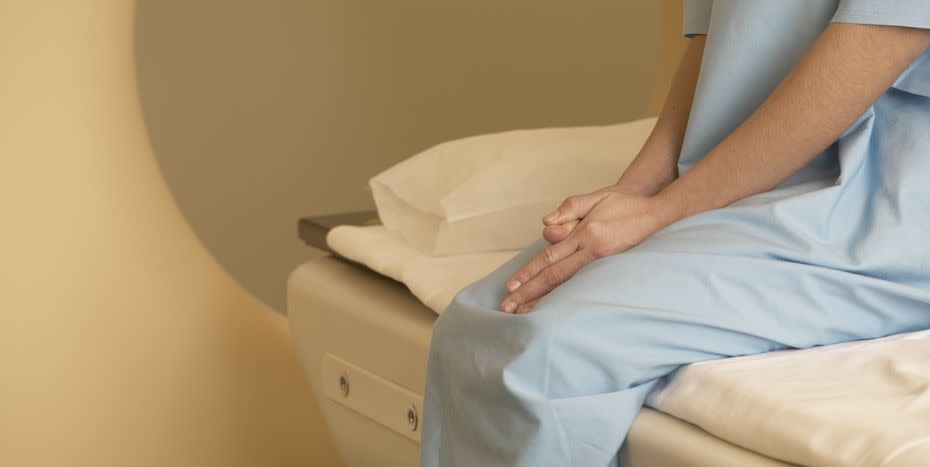Thousands of women in the UK are being given "dangerous" electric shock treatment for mental health

Thousands of women in the UK have been given "dangerous" electric shock therapy for their mental health, with concerns being voiced that the treatment can leave patients with irreparable brain damage and severe memory loss.
According to Dr John Read, a professor at the University of East London and leading expert on electroconvulsive therapy (ECT), statistics he obtained through a Freedom of Information request show that women were disproportionately given the treatment in comparison to male patients.
In fact, in 2019, 67% of 1964 patients who received the treatment were female, and women were given ECT twice as often as men across 20 NHS trusts in the UK – although, it's worth noting that some research shows women are twice as likely to be diagnosed with depression, in comparison to men. Further research carried out by Dr Read also found that 36% of patients underwent ECT without giving their consent.
But, whilst some patients have praised the treatment for helping them overcome mental health issues such as depression, leading doctors and mental health charities have condemned the use of ECT, and guidelines from the National Institute for Health and Care Excellence (NICE) – which makes evidence-based recommendations to the NHS – stipulate that ECT should only be used as a last resort.
"The recommendations in our current guideline on the identification and management of depression in adults state that clinicians should only consider ECT for acute treatment of severe depression that is life-threatening and when a rapid response is required, or when other treatments have failed," a spokesperson for NICE told Cosmopolitan UK.
"The patient should be fully informed of the risks associated with ECT, and with the risks and benefits specific to them," the spokesperson added. "Any decision to use ECT should be made jointly with the person with depression as far as possible, taking into account, where applicable, the requirements of the Mental Health Act 2007."

But Dr Read claims that the guidelines set out by NICE are routinely ignored, with his investigation finding that many NHS trusts admitted to giving patients ECT without having been offered treatments such as counselling or cognitive behaviour therapy (CBT) beforehand. He also argues that the guidelines do not adequately require NHS trusts to inform patients of the risks associated with ECT. "We have bombarded NICE with research showing that ECT is unsafe in terms of causing brain damage and memory loss," Dr Read said. "They have just ignored our correspondence."
One woman who underwent ECT told The Independent that the treatment had "completely destroyed" her life. "By the end of it, I couldn’t recognise relatives or friends," she said. "I couldn’t count money out. I couldn’t do my two times table. I couldn’t navigate anywhere. I couldn’t remember what I’d done from one minute to another.
"I couldn’t remember the names of people. I would get through a sentence and forget the word for a house. I’d lost vocab. I couldn’t remember my kids' birthdays. You lose all your memories from years ago."
Speaking to The Independent, Stephen Buckley, a spokesperson for Mind, said the mental health charity supports a "comprehensive review into the use of ECT," which he branded a "potentially risky physical treatment".
"Generally, when we talk about ECT, the public assumes it is banned," added Dr Jessica Taylor, a psychologist and author of Sexy But Psycho. "When people think about ECT they think about horror movies like Shutter Island."
She went on: "In my view, there is never a good reason to give an animal or human electric shocks to the brain. In another circumstance, it is fatal – you’re not meant to get electrocuted."
For information, support and advice about mental health and where to get support, visit Mind’s website at www.mind.org.uk or call Mind’s Infoline on 0300 123 3393 (Monday to Friday, 9.00am to 6.00pm).
You Might Also Like


